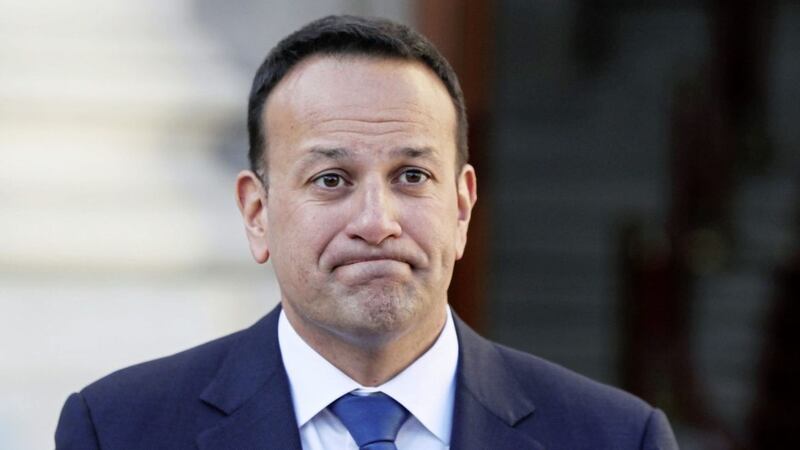The EU insists that the backstop is essential to prevent a hard border, protect the integrity of the Good Friday Agreement (GFA) and lessen the chances of a return to violence.
So it says that it won't be acceding to Mrs May's request to reconsider the wording of the backstop in the Withdrawal Agreement, even though her successful motion on Tuesday was built on the understanding that her government, with DUP backing, would support the rest of the agreement if other arrangements could be agreed between her and the EU. If not, then she returns to the Commons empty-handed in two-weeks time and increases the chances of a no-deal exit.
But what the EU and the Irish government have to consider is this: is a no deal more likely to lead to a hard border, a 'coach and horses' through the GFA and the possibility in the rise of the sort of tensions which could both fuel and ignite a return to violence? One thing is clear, a border, or control/surveillance process of some sort or other is required if Ireland is in the customs union and the UK isn't. And even if Northern Ireland stays in while GB is out, then it still creates a problem with goods leaving any part of Ireland (which would be treated as a single entity by the EU) for any part of the UK. That, in a nutshell, is why unionists - and not just the DUP - oppose the backstop in its present form: it creates a circumstance in which Northern Ireland, in political/economic/constitutional terms is treated entirely differently from the rest of the UK.
The key to a no deal requires a compromise from the EU and Irish government. In that context it's worth reiterating that May's party coalesced around a motion that bound them to support the rest of the Withdrawal Agreement in exchange for concessions on the backstop. Given that the European Reform Group (which, under the direction of Jacob Rees-Mogg, has been a constant pain in the prime minister's side) agreed with Boris Johnson's original assessment that the Withdrawal Agreement represented a form of vassalage for the UK and fell 'far short' of a clean-break Brexit, it is hugely significant that they now appear willing to endorse it as part of the overall deal. The EU will require confirmation on that point, of course; but, if it is forthcoming, then it surely makes sense for the EU to consider proposals for change.
I've said before I think Leo Varadkar and his government have overplayed their hand on the backstop. To a certain extent I can understand that: he believes, as does most of nationalism in Northern Ireland, that the DUP has played the uber-unionist card rather than acknowledging and addressing the concerns of the 56 per cent who voted Remain. It was a mistake by the DUP and made it impossible for the Northern Ireland parties to present a united front to London, Dublin and Brussels. Crucially, I believe it was the uber-unionist stance which forced Dublin, Brussels and the prime minister towards backstop territory.
A soft landing on the border has always been possible. Indeed, when supporting Leave in June 2016 I said on a number of occasions that a soft landing should not be a problem, since London, Dublin, Brussels and Belfast were already aware of the unique set of relationships created in 1998. Sadly, though, we ended up in a situation where the EU felt the need (which I understand) to back Dublin when the DUP signed their confidence and supply deal with the Conservatives. We were back on 'dreary steeples' ground.
I have never supported a no deal departure (although if it happens, it happens). I know it would be bad for Northern Ireland and particularly bad for north/south relations; not to mention the impact it would have on the already very strained relationship between the DUP and SF (although it's worth pointing out that the relationship between them was in a downward spiral long before the Brexit referendum). And a no deal exit in the present circumstances - when the political centre has collapsed and the likelihood of a rebooted Assembly seems so remote - would be particularly difficult.
A no deal is not in the interests of Ireland, the UK (especially NI) or Brussels; if, for no other reason, than that it leaves too many problems unresolved. So I think a no deal departure is unlikely, albeit not impossible. We're at the endgame stage of what has been a remarkably odd and drawn-out process through previously uncharted waters. Keeping all sides happy will not be easy. But it certainly isn't impossible - even at this very late stage.
That said, I'm writing this around teatime on Wednesday afternoon: by Friday morning one of a dozen different things or comments from key players could have pushed us further into the quagmire. Maybe we should all just go and negotiate with Sammy in the nearest chippy!








